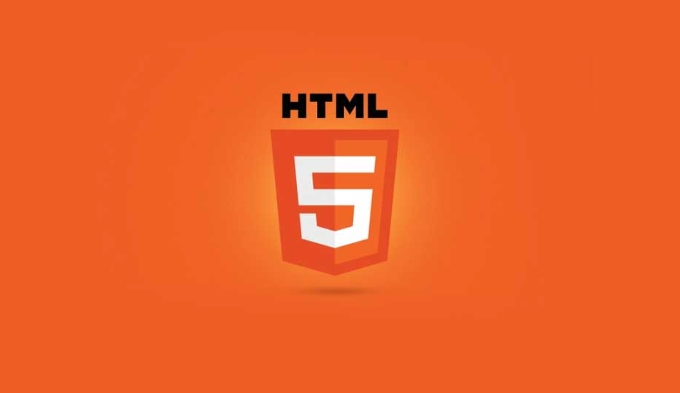Creating sortable lists using the HTML5 Drag and Drop API.
Jul 02, 2025 pm 04:42 PMThe key to implementing sortable lists lies in the HTML5 drag and drop API. The following points should be noted: 1. Set the draggable attribute to make the elements draggable and prevent the default behavior of the dragover to allow placement; 2. Listen to dragstart to record drag data, and update the DOM structure when dropping; 3. Use the dragover event to judge the insertion position in combination with coordinates to realize the sorting logic; 4. Add style optimization experience and deal with mobile compatibility issues.

The key to implementing sortable lists is the HTML5 drag and drop API. Although browser support is already quite extensive, there are still several key points to make it really easy to use.

1. Basic structure and drag attribute settings
To make an element draggable, you must first add draggable="true" attribute. For example on a <li> element:

<ul id="sortable-list"> <li draggable="true">Item 1</li> <li draggable="true">Item 2</li> </ul>
It is not enough to drag lightly, but you have to tell the browser which elements can be used as "targets" to receive drag content. Usually we listen to the dragover event and block the default behavior so that the element can be dragged over the target area.
It should be noted that some elements (such as links and images) are draggable by default, but most ordinary elements need to manually set draggable .

2. Handle drag and drop events: dragstart and drop
The core of drag and drop is to listen for several key events:
- <li>
dragstart : triggered when the user starts dragging elements, which is usually used to set data and drag images.<li> dragover : continuously triggers on a placeable target. preventDefault() must be called here, otherwise drop cannot be triggered.<li> drop : Triggered when the user releases the mouse to complete the placement, here is where the DOM is updated. For example, in dragstart we can record which element is currently dragging:
const listItems = document.querySelectorAll('#sortable-list li');
listItems.forEach(item => {
item.addEventListener('dragstart', (e) => {
e.dataTransfer.setData('text/plain', item.textContent);
item.classList.add('dragging');
});
}); In the drop stage, we can insert elements into appropriate locations based on the acquired data.
3. Implement true "sorting" logic
Light energy is not enough. The key is to allow the user to drag to a certain position and insert the element in front or behind that position.
A common practice is to listen for dragover and find out where it should be inserted. You can use document.elementFromPoint() or compare coordinates to determine which two elements the drag element is between.
Let's give a simple implementation example:
const list = document.getElementById('sortable-list');
list.addEventListener('dragover', (e) => {
e.preventDefault();
const dragging = document.querySelector('.dragging');
const elements = [...list.querySelectorAll('li')].filter(el => el !== dragging);
let nextElement;
for (const el of elements) {
const rect = el.getBoundingClientRect();
if (e.clientY < rect.top rect.height / 2) {
nextElement = el;
break;
}
}
if (nextElement) {
list.insertBefore(dragging, nextElement);
} else {
list.appendChild(dragging);
}
});The general idea of ??this method is: judge which element should be inserted before based on the Y coordinate of the mouse. If you don't find the right position, put it to the end.
4. Style optimization and compatibility processing
In order to make the user experience better, it is recommended to add some style changes during the dragging process, such as translucent effects, border highlighting, etc.:
.dragging {
opacity: 0.5;
}Additionally, the HTML5 drag and drop API support on mobile is not ideal, because the "drag" operation on mobile devices is usually scrolling rather than drag and drop. If you need mobile support, you may need to introduce additional libraries or use touch event simulation instead.
Basically that's it. It seems not complicated, but details are prone to errors. For example, forgetting preventDefault() or not handling the insertion order correctly will cause the function to fail.
The above is the detailed content of Creating sortable lists using the HTML5 Drag and Drop API.. For more information, please follow other related articles on the PHP Chinese website!

Hot AI Tools

Undress AI Tool
Undress images for free

Undresser.AI Undress
AI-powered app for creating realistic nude photos

AI Clothes Remover
Online AI tool for removing clothes from photos.

Clothoff.io
AI clothes remover

Video Face Swap
Swap faces in any video effortlessly with our completely free AI face swap tool!

Hot Article

Hot Tools

Notepad++7.3.1
Easy-to-use and free code editor

SublimeText3 Chinese version
Chinese version, very easy to use

Zend Studio 13.0.1
Powerful PHP integrated development environment

Dreamweaver CS6
Visual web development tools

SublimeText3 Mac version
God-level code editing software (SublimeText3)

Hot Topics
 Audio and Video: HTML5 VS Youtube Embedding
Jun 19, 2025 am 12:51 AM
Audio and Video: HTML5 VS Youtube Embedding
Jun 19, 2025 am 12:51 AM
HTML5isbetterforcontrolandcustomization,whileYouTubeisbetterforeaseandperformance.1)HTML5allowsfortailoreduserexperiencesbutrequiresmanagingcodecsandcompatibility.2)YouTubeofferssimpleembeddingwithoptimizedperformancebutlimitscontroloverappearanceand
 Adding drag and drop functionality using the HTML5 Drag and Drop API.
Jul 05, 2025 am 02:43 AM
Adding drag and drop functionality using the HTML5 Drag and Drop API.
Jul 05, 2025 am 02:43 AM
The way to add drag and drop functionality to a web page is to use HTML5's DragandDrop API, which is natively supported without additional libraries. The specific steps are as follows: 1. Set the element draggable="true" to enable drag; 2. Listen to dragstart, dragover, drop and dragend events; 3. Set data in dragstart, block default behavior in dragover, and handle logic in drop. In addition, element movement can be achieved through appendChild and file upload can be achieved through e.dataTransfer.files. Note: preventDefault must be called
 What is the purpose of the input type='range'?
Jun 23, 2025 am 12:17 AM
What is the purpose of the input type='range'?
Jun 23, 2025 am 12:17 AM
inputtype="range" is used to create a slider control, allowing the user to select a value from a predefined range. 1. It is mainly suitable for scenes where values ??need to be selected intuitively, such as adjusting volume, brightness or scoring systems; 2. The basic structure includes min, max and step attributes, which set the minimum value, maximum value and step size respectively; 3. This value can be obtained and used in real time through JavaScript to improve the interactive experience; 4. It is recommended to display the current value and pay attention to accessibility and browser compatibility issues when using it.
 How can you animate an SVG with CSS?
Jun 30, 2025 am 02:06 AM
How can you animate an SVG with CSS?
Jun 30, 2025 am 02:06 AM
AnimatingSVGwithCSSispossibleusingkeyframesforbasicanimationsandtransitionsforinteractiveeffects.1.Use@keyframestodefineanimationstagesforpropertieslikescale,opacity,andcolor.2.ApplytheanimationtoSVGelementssuchas,,orviaCSSclasses.3.Forhoverorstate-b
 HTML audio and video: Examples
Jun 19, 2025 am 12:54 AM
HTML audio and video: Examples
Jun 19, 2025 am 12:54 AM
Audio and video elements in HTML can improve the dynamics and user experience of web pages. 1. Embed audio files using elements and realize automatic and loop playback of background music through autoplay and loop properties. 2. Use elements to embed video files, set width and height and controls properties, and provide multiple formats to ensure browser compatibility.
 What is WebRTC and what are its main use cases?
Jun 24, 2025 am 12:47 AM
What is WebRTC and what are its main use cases?
Jun 24, 2025 am 12:47 AM
WebRTC is a free, open source technology that supports real-time communication between browsers and devices. It realizes audio and video capture, encoding and point-to-point transmission through built-in API, without plug-ins. Its working principle includes: 1. The browser captures audio and video input; 2. The data is encoded and transmitted directly to another browser through a security protocol; 3. The signaling server assists in the initial connection but does not participate in media transmission; 4. The connection is established to achieve low-latency direct communication. The main application scenarios are: 1. Video conferencing (such as GoogleMeet, Jitsi); 2. Customer service voice/video chat; 3. Online games and collaborative applications; 4. IoT and real-time monitoring. Its advantages are cross-platform compatibility, no download required, default encryption and low latency, suitable for point-to-point communication
 How to check if a browser can play a specific video format?
Jun 28, 2025 am 02:06 AM
How to check if a browser can play a specific video format?
Jun 28, 2025 am 02:06 AM
To confirm whether the browser can play a specific video format, you can follow the following steps: 1. Check the browser's official documents or CanIuse website to understand the supported formats, such as Chrome supports MP4, WebM, etc., Safari mainly supports MP4; 2. Use HTML5 tag local test to load the video file to see if it can play normally; 3. Upload files with online tools such as VideoJSTechInsights or BrowserStackLive for cross-platform detection. When testing, you need to pay attention to the impact of the encoded version, and you cannot rely solely on the file suffix name to judge compatibility.
 How to create animations on a canvas using requestAnimationFrame()?
Jun 22, 2025 am 12:52 AM
How to create animations on a canvas using requestAnimationFrame()?
Jun 22, 2025 am 12:52 AM
The key to using requestAnimationFrame() to achieve smooth animation on HTMLCanvas is to understand its operating mechanism and cooperate with Canvas' drawing process. 1. requestAnimationFrame() is an API designed for animation by the browser. It can be synchronized with the screen refresh rate, avoid lag or tear, and is more efficient than setTimeout or setInterval; 2. The animation infrastructure includes preparing canvas elements, obtaining context, and defining the main loop function animate(), where the canvas is cleared and the next frame is requested for continuous redrawing; 3. To achieve dynamic effects, state variables, such as the coordinates of small balls, are updated in each frame, thereby forming






